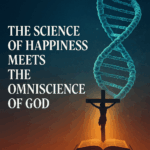“Every Spiritual Blessing… Sealed with the Holy Spirit” – Ephesians 1:3-14
1. Markings
a. Tattoos
I’m sure you have noticed how popular tattoos and piercings are these days. Tattoos are common for young people and for sailors and for athletes, but they are not limited to those groups. You see tattoos on all kinds of people, and on various parts of their bodies – backs, ankles, wrists, chests, arms, and legs. Sometimes those tattoos will feature an image or saying that is meaningful to that person. Sometimes those tattoos will bear the name or the image of their beloved. Sometimes tattoos are an occasion for a witness to Jesus. In those last two examples, the tattoos are expressions of relationship – to your loved one, or to your Saviour.
b. Piercings
Piercings are also becoming more common, as we see rings adorn not just ears, but noses and lips and tongues and belly buttons. They, too, may be an expression of something very personal and endearing for the wearer. Did you know that piercings are not just mentioned but commanded in the Old Testament of the Bible? In Exodus 21, mere verses after the Ten Commandments are listed, God tells the Israelites something about the treatment of slaves. He says that if you have a Hebrew slave, he is to serve you for six years, and then in the seventh year he is to go free. Besides that, as he leaves your service you are to bless him by giving him some product from your flocks, and crops, and orchards. However, if he expresses love and appreciation for you and your family, and wants to remain in service to you beyond the six years, then you are to take him to a doorpost and punch an awl through his earlobe – a piercing… indicating ownership.
So why a piercing? Why a door? Why an ear? Think about it: Nails driven through flesh? Blood on doorframes? Permanent piercing, with holes and scars forever? Does it sound at all familiar?
i) Why a piercing?
The piercing would mark the flesh permanently. In Galatians 6, Paul wrote: “I bear on my body the marks of Jesus.” The Greek word for ‘marks’ is ‘stigma’ and it means a mark punched to recognize ownership, or figuratively a scar of service. In ancient times, slaves and soldiers bore the name or the stamp of their master or commander branded or cut into their bodies to indicate who they belonged to, who they served. Paul is talking about the scars, the marks, the stigmata in his own body that mark him as a bondslave to Jesus. Last Sunday, I mentioned that Paul had received 39 lashes 5 times for his dedication to serving Jesus. But Jesus also had permanent scars, pierced on wood, as a result of love, and because of His willing submission to serve us. He showed those scars in His hands and side to His disciples on Easter evening. He still has scars on his hands to this day, and forever – a permanent mark of his great love for us, and willing servanthood, far beyond any conceivable call of duty.
ii) Why a door?
A door is a passageway; a portal. It presents an opportunity to move from one environment to another. When we think of a door frame, our minds are taken back to that iconic image in the Book of Exodus when the Israelites put the blood of the pure, spotless lamb on their door frames. It would symbolize the transfer of the Israelites from slavery in Egypt to following a new master in freedom. The blood of the lamb on the door lintels, the blood of the Messiah on the cross, the blood of the slave on the door frame – all indicate a willingness to serve, all indicate a crossing through a threshold, through a door, through a portal, to a new reality.
iii) Why the ear?
When Aaron was consecrated as the high priest of the Israelites, some blood was taken from a sacrificed bull and rubbed on his right ear lobe, his right thumb and his right big toe. The thumb / the hand symbolized his deeds. The toe / the foot symbolized his walk, his path. The ear symbolized his hearing and obeying the Word of the Lord. The priests were made holy in all aspects of their service. It is a picture of a life thoroughly cleansed and consecrated to God. Sin is atoned for by the blood of the sacrifice, and the entire body is prepared for service.
c. Seals
At the end of our lesson from Ephesians 1, we don’t hear about tattoos or piercings, but we do hear about a different term – a seal. The term Paul uses is “sealed with the promised Holy Spirit.” A seal may not have the same imagery as do tattoos and piercings, but it does carry with it the sense of an official identification. In Paul’s day, the most common use of a seal was to make letters and documents secure. You would drop some melted wax on the document, then press your ring or seal on the wax to make your mark, your “signature.” This practice is known way back in the Old Testament, too. When Judah spent the night with his own daughter-in-law, who had dressed up like a prostitute, she asked what he would give her for her sexual favours. They agreed on a young goat, but until he could send it, she asked for three things – one of which was his signet ring. She would give it back when the goat arrived. When she got pregnant, the signet ring gave the identity of the father.
We still use seals today. We have this little gadget which looks like it is as old as our congregation – 65 years or so. When you press it into paper – for something like a Baptism or Confirmation Certificate – it embosses the paper with the identification of Hope Lutheran Church. It makes the certificate official, even though the real significance is in what happened, not in what is recorded on paper.
2. The Holy Spirit – the seal of God’s promises
A seal on a document is legal proof of ownership or that something happened. The Holy Spirit, given to you in Baptism, is proof that all of God’s promises to you in Christ will come true. And that’s what St. Paul talks about – every spiritual blessing in Christ. If he were speaking these first verses of his letter to the Ephesians instead of writing them, he would be tripping over his tongue, for in Greek verses 3 – 14 are one long run-on sentence. Let’s unpack some of those spiritual blessings that Paul describes.
3. Every spiritual blessing
The first thing we want to note here is that Paul is talking about spiritual blessings, blessings in the heavenly realm. Paul is NOT praising God for material or earthly blessings. He is NOT thanking God for a lack of sickness or hardship. (Remember, last week, I mentioned Paul’s sufferings for Christ, and his ‘thorn in the flesh.’) Paul is NOT thanking God for material prosperity – having the newest four-hoof drive donkey, with all the bells and hee-haws. Paul IS talking about things that have eternal significance, things that come from the very grace of God.
a. Chosen, predestined, adoption
The first blessing to consider is found in three complementary compound Greek words – chose, predestined and adoption.
Before I tell you about them, let me tell you about how I used to organize football games when we lived in Calgary. I would actually rent McMahon Stadium where the Stampeders professional football team plays. Then I would get some skilled and experienced guys to play – some guys were my age – 40’s, early 50’s, but still really good – some guys were my son’s age, early 20’s. Now, you may know that often when pick-up games like that take place, you choose two captains and then those captains choose players for their team one at a time. I don’t like that method, because then the last people chosen feel like they are the least desired. So, my method of choosing the teams was simply for players of similar skill to pair up, and one would wear a white shirt and the other would wear a dark shirt. The white-shirted players would be one team; the dark ones would be the other team.
The first compound word that Paul uses is ‘chosen.’ It means to speak out… for or in support of someone, and so to choose, or select. This is the same word that was used when Jesus selected His twelve disciples, and when the disciples chose Matthias to replace Judas, and when Stephen was selected as a deacon. It was the same word that Jesus used when He said, “You did not choose me, but I chose you…” Now Paul, writing to believers in Ephesus (and to believers of all times and places), says that God chose us. Obviously God likes that ‘captain choosing players for his team’ method. But He doesn’t just choose the best people, the most skilled people to be on His team – the holy, righteous, and morally superior people. Sometimes I feel like I shouldn’t be on God’s team. I have sinned, over and over again. I haven’t always been faithful in my Bible reading and prayers. I have failed to be Christ’s ambassador in conversations with others – conversations that provide that witnessing opportunity. Maybe for your own reasons, you feel like you shouldn’t be on God’s team. But we need not despair for the truth is, the freeing truth is that God chose us not for our holiness, not for our expertise, not for our potential contribution to His team’s success. He chose us because of who He is, not because of who we are. Paul says “He chose us in Him” – and the Him is Jesus. He chose us in our unholy and blame-worthy state for the express purpose of making us holy and blameless before Him. (More about that in a moment.)
The second compound word is ‘predestined.’ It literally means to determine or decide in advance. Far from leading us either to be complacent or to have a heavy heart about our salvation, the teaching about predestination is meant to give us assurance and comfort. Just as Abraham was once God’s predetermined chosen man, just as Israel was once God’s predetermined chosen people, so now we, who are believers in Christ, are God’s predetermined chosen ones to be His presence in our world. Our salvation is no accident. What God planned in eternity, what God had in mind from the very beginning, God has now accomplished in history through His Son, Jesus. The word ‘predestined’ in verse 5 is actually described by the last two words in verse 4. It is “in love” that God predestined us to belong to Him, and it is “in love” that God places us into our world to make Him known.
The third compound spiritual blessing word is adoption. It is made up of the word ‘son’ and the word ‘placing,’ so it literally means the placing of a son (or a daughter) into a home and with a family. Although we are born sinful, in the waters of Holy Baptism God calls us His own, and gifts us with His name, just like an adopted baby is given a new name with a new family. Paul writes that it is through Jesus Christ that we are adopted as sons and daughters – because He is truly God’s Son. We can rejoice in our identity in God’s family made possible by Jesus becoming one with us in our human family.
b. Redeemed, forgiven, lavished grace
Paul continues to explain our spiritual blessings in the next thought as he talks about redemption. He connects our redemption, of course, with the blood of Jesus shed on the cross of Calvary. It’s there that we receive the forgiveness of our trespasses. It’s there that we become holy and blameless. Paul had already said that God chose us to be holy and blameless, but He doesn’t expect us to be holy and blameless before He chooses us, or to be holy and blameless all on our own. After all, we’re sinners, every one of us. So He, Himself, makes us holy and blameless by the piercing of Jesus’ hands and feet, by the shedding of Jesus’ holy and blameless blood at the cross. It’s there that we come to know the full depth of God’s rich grace which He lavished on us, pouring it out recklessly, without consideration of the cost – kind of like when Mary of Bethany poured out an entire bottle of expensive perfume on Jesus’ feet a few days before He was crucified. She didn’t care how much it cost, for Jesus was worth the sacrifice. In the same way, God poured out His love, regardless of the cost of His own Son’s life, because we are worth that much to God.
Actually the word ‘redemption’ would be familiar to Paul’s readers for it referred to the full liberation and freedom of a Roman slave, purchased with a ransom price. Before the new owner could pierce the slave’s ear lobe, he had to pay the ransom price to buy that slave. The redemption price that God paid for our freedom from sin, death and the power of the devil was the blood of His own Son. And as I mentioned before that means that we belong to a new master… a loving, gracious and compassionate God. The scars belong to Jesus, the freedom belongs to us.
c. Our eternal inheritance
The last spiritual blessing to unpack is mentioned twice in the last four verses. It’s the word ‘inheritance.’ I love that word and that concept. It’s something that you receive from a parent or grandparent, maybe an aunt or uncle – simply because you’re part of the family. Pastor Greg Wismar tells the story of his mother, when she was getting older, taking her grandchildren through the family homestead, and asking them to mark items that they would like to have some day. There were initialed pieces of sticky tape on pictures, furniture, kitchen items. They served as a reminder of a future inheritance. In the same way, we can look forward to our eternal inheritance in heaven – not because I’m a pastor, not because you taught Sunday School, or served on church council, not because you were a Good Samaritan to your neighbour or were a kind and thoughtful husband or wife. Our inheritance in heaven is because God gave us His name in Holy Baptism and because we put our full hope and trust in Jesus as our Brother and in God as our Father. Our inheritance is because we are part of the family. And, Paul says, it is the Holy Spirit who is our seal, our piercing (?), our tattoo (?), assuring us that we belong to God, assuring us that all of those spiritual blessings – every last one of them – will come our way in this life and ultimately in the life to come.
I don’t have any piercings on my ear lobe. I don’t have a Jesus tattoo on the small of my back. But I do have the seal of the Holy Spirit – and that Spirit says I am chosen, predestined, adopted, redeemed, forgiven, lavished with God’s grace and waiting for the final, ultimate and eternal inheritance. Are you baptized? Do you trust in Jesus as your Saviour, your forgiver? If so, the Holy Spirit assures you of the very same things.
Oh, one more subtle thing to notice in Ephesians 1. Three times Paul sneaks in the little phrase: “to the praise of His glory.” That is to underline once more that our spiritual blessings are not to our credit, not to our praise, but to God alone. As we understand and appreciate who we are in Jesus, and what we have in Jesus, we offer our praise and thanks and worship and honour to God, and to Him alone, through Jesus Christ, thanks to the promised Holy Spirit. Amen.








